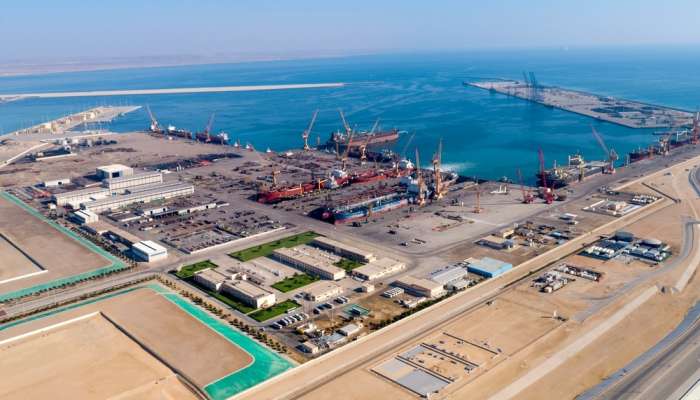Oman is experiencing significant economic growth and resilience, as evidenced by the recent credit rating upgrades from Standard & Poor’s. The nation’s credit rating has been raised from BB+ to BBB-, with a stable outlook, indicating strong financial stability and commitment to the Vision 2040 strategy. Dr. Nasser bin Rashid Al Maawali, Undersecretary of the Ministry of Economy, highlighted this achievement as a major milestone, showcasing Oman’s determination to strengthen its economic foundations in the face of global challenges. This improvement is attributed to strategic financial management and successful implementation of economic policies, supported by increasing oil prices.
Through proactive measures such as replacing high-cost loans and using additional oil revenues for debt repayment, Oman has effectively reduced its public debt from OMR15.3 billion in 2020 to OMR 14.4 billion in mid-2024. With a projection of the debt-to-GDP ratio decreasing to 29% by 2027, Oman is on track towards sustainable financial health. Dr. Al Maawali credited the nation’s financial transformation to the government’s directives and strategic financial management. The implementation of Oman Vision 2040 has enabled the country to overcome challenges posed by declining oil prices and the pandemic in 2020, leading to a significant economic turnaround.
The Tenth Five-Year Plan (2021-2025) has played a crucial role in Oman’s economic growth and diversification. Programmes like the Public Finance Management System and the Local Added Value programme have contributed to reducing expenditures and increasing financial efficiency. Oman’s GDP is expected to continue growing steadily due to the expansion of non-oil sectors and successful diversification initiatives. Sectors such as green hydrogen and industrial projects are gaining momentum, enhancing Oman’s investment appeal and contributing to sustainable economic growth.
Oman has also made notable progress in improving the quality of life for its citizens through enhanced public services and development projects supporting housing loans and social protection. Investments in essential services like fuel, electricity, water, and basic commodities have boosted living standards. The nation continues to promote economic decentralisation through regional development projects, aligning with the goals of Vision 2040. These efforts have resulted in a positive outlook from global institutions such as the International Monetary Fund, which recognises Oman’s strong financial management and public finance surplus.
The rise in Oman’s credit ratings has significantly boosted investor confidence, leading to a tangible increase in foreign direct investments (FDIs). The government aims to raise investment rates to 27% of GDP by 2025, and progress is being made towards achieving this target. Legislative advancements aimed at facilitating investment procedures, reducing costs, and expanding digital services have improved the business environment in Oman. Initiatives such as the incentive programme for the private sector and opportunities in the Muscat Stock Exchange have been introduced to attract more investments and support economic growth.
Looking ahead, Oman remains optimistic about the future, with a commitment to maintaining a stable and attractive investment climate. The Tenth Five-Year Plan plays a crucial role in achieving the goals set out in Vision 2040, focusing on comprehensive development and improved living standards for citizens. The collaboration among government sectors and the ongoing implementation of strategic programmes under the Tenth Five-Year Plan will further enhance Oman’s financial sustainability and position the nation as a competitive player in the global market. The rise in credit ratings serves as a testament to Oman’s collective efforts and vision for a prosperous future.





















